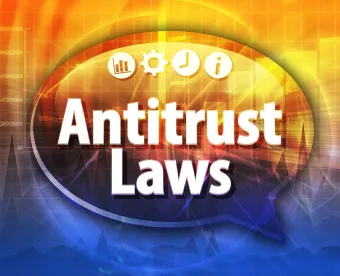OCTOBER - DECEMBER 2019 UPDATE
UNITED STATES
The Federal Trade Commission (FTC) and Department of Justice (DOJ) continue to investigate and challenge M&A transactions in a variety of industries. Events of this quarter highlight the importance of states in merger enforcement. In December, a coalition of states went to trial to challenge the Sprint/T-Mobile transaction after a divestiture remedy was approved by the DOJ. In addition, the FTC’s challenge of Illumina Inc.’s acquisition of Pacific Biosciences of California, Inc. highlights the regulators’ focus on preventing monopolists from buying nascent competitors.
EUROPEAN UNION
The UK Competition and Markets Authority (UK CMA) continues to expand its role as a key jurisdiction in the merger clearance process, which will only accelerate with Brexit. The European Commission (EC) agreed to clear, subject to conditions, acquisitions in the aluminum production and battery industries as well as in the wholesale supply and retail distribution of TV channels after conducting Phase II reviews. Moreover, the EC opened new in-depth investigations into transactions in the copper refining and engineering sectors. The UK CMA initiated a Phase II review into a payment software merger and ordered a cleaning chemicals supplier to unwind its acquisition of a competitor.
SNAPSHOT OF EVENTS
UNITED STATES
FTC Chairman Announces New Leadership at Bureau of Competition
On December 18, 2019, FTC Chairman Joseph Simons announced two appointments to the Bureau of Competition’s (BC) senior leadership. Simons named Ian Conner Bureau Director and Daniel Francis Deputy Director. Conner had served as Deputy Director at the BC since 2017, so this change should not represent a significant shift in agency positions. Francis joined the BC in May 2018 as Senior Counsel to the Director and was subsequently promoted to Assistant Director of Digital Markets, indicating that Francis has a technology background.
-
Congressional Democrats Introduce Legislation Seeking to Strengthen Regulatory Approval Process for Bank Mergers
In December 2019, Congressional Democrats introduced the Bank Merger Review Modernization Act aiming to overhaul the regulatory approval process for bank mergers. Bill sponsors Senator Elizabeth Warren, D-Mass., and Representative Jesús “Chuy” García, D-Ill., characterized the current regulatory approval process where approval from the Federal Reserve, the Federal Deposit Insurance Corporation, and other regulators is required, as nothing more than a rubber-stamp. The new bill would require the Consumer Financial Protection Bureau to weigh in when one of the merging parties offers consumer financial products, and would implement a new quantifiable metric to evaluate potential harm to consumers based on the merging banks’ size, complexity and other variables. The lawmakers suggest that their proposed legislation would have blocked the $66 billion dollar BB&T/SunTrust merger that the DOJ approved in November 2019 subject to divestitures of about 30 bank branches.
-
Agencies Release Hart-Scott-Rodino Annual Report for 2018
The FTC and DOJ released their joint Hart-Scott-Rodino Report summarizing FTC and DOJ actions under the HSR Act in FY 2018 (October 1, 2017, through September 30, 2018). According to the report, the number of HSR filings increased in FY 2018 (2,111 transactions reported), compared to FY 2017 (2,052 transactions reported). There has been a decrease in the overall percentage of transactions in which a Second Request was issued, from 2.6% in FY 2017 to 2.2% in FY 2018. However, when Second Requests were issued by the Agencies, FY 2018 saw an increase in the number of transactions resulting in an FTC or DOJ challenge. In FY 2018 the agencies challenged (including settlements) 86.7% of transactions issued Second Requests, compared to 80.4% in FY 2017. Of the 39 challenged transactions in FY 2018, 55% were resolved via settlement, 23% resulted in the parties abandoning the transaction and 15% were challenged in federal or administrative court.
EUROPEAN UNION
The French Competition Authority Modernizes Its Merger Control Procedures
The French Competition Authority (Autorité de la Concurrence) launched the possibility for companies to notify so-called “simple” mergers online and reduced the amount of information that parties must provide when notifying such transactions. Moreover, the French Competition Authority intends to adopt new merger guidelines in a few months. These are expected to increase the number of transactions that fall under the simplified procedure from 50% to 70%.
-
UK CMA Lifts the Lid on Digital Giants
The UK CMA published an update in relation to its ongoing examination of online platforms and digital advertising. This is part of the UK CMA’s wider digital strategy, which aims at coordinating the authority’s approach in tackling new challenges of the rapidly developing digital economy. In particular, the UK CMA is considering changes to its merger control regime to review more closely acquisitions by particularly powerful technology companies.
SNAPSHOT OF SELECTED ENFORCEMENT ACTIONS1
UNITED STATES (TIMING FROM SIGNING TO CONSENT OR INVESTIGATION CLOSING)

EUROPEAN UNION (TIMING FROM SIGNING TO CLEARANCE)

1This graph and the summaries that follow do not represent a complete list of all matters within a jurisdiction. Certain matters involving firm clients are not included in this report.
SIGNIFICANT US TRIALS
|
PARTIES |
AGENCY |
COURT |
MARKETS / STRUCTURE (AS AGENCY ALLEGED) |
MAJOR ISSUES |
OBSERVATIONS |
|
United States |
|||||
|
Sprint / T-Mobile |
Multiple States |
US District Court for the Southern District of New York |
Mobile wireless telecommunications services
4 to 3 |
Does relevant product market include mobile virtual network operators that lease wireless telephone and data service facilities-based wireless carriers?
Does DOJ settlement and required divestiture setting up Dish as a new facilities-based competitor resolve the competitive concerns? |
A coalition of states filed suit to block T-Mobile’s acquisition of Sprint in June 2019. Several of the states maintained their lawsuit after the parties received federal approval from the DOJ and the Federal Communications Commission (FCC). In July 2019, the DOJ approved the proposed merger subject to a settlement requiring the divestiture of Sprint’s prepaid wireless business and certain spectrum assets to Dish Network Corp., a satellite television provider. Sprint and T-Mobile also agreed to provide Dish with cell sites and retail locations and T-Mobile agreed to provide Dish with access to its network for 7 years while Dish begins building its own 5G network. The FCC formally approved the merger in November 2019.
A two-week bench trial before Judge Marrero took place in December 2019, with the parties returning for closing arguments on January 15, 2020. At trial, the State AGs alleged that the merger would reduce the number of mobile wireless competitors from 4 to 3, eliminating head-to-head competition between Sprint and T-Mobile that has resulted in lower prices for consumers. The State AGs also argued that Dish’s entry under the DOJ settlement will be neither timely, likely, nor sufficient to counter the deal’s anticompetitive effects. On February 11, Judge Marrero denied the State AGs’ motion to block the transaction. |
|
Novelis / Aleris |
DOJ |
US District Court for the Northern District of Ohio |
Aluminum automotive body sheet
4 to 3 |
Is aluminum automotive body sheet a separate market from steel automotive body sheet? |
The DOJ filed suit to prevent Novelis from acquiring Aleris due to concern over higher prices for aluminum sheet used in car manufacturing. The deal would combine two of the four largest producers in North America of aluminum automotive body sheet and would result in the combined entity controlling 60% of projected domestic capacity, according to the DOJ. To resolve a dispute regarding the product market, the DOJ turned to binding arbitration for the first time, pursuant to the Administrative Dispute Resolution Act of 1996. The arbitration proceedings are ongoing. |
|
Sabre Corporation / Farelogix, Inc. |
DOJ |
US District Court for the District of Delaware |
Provision of booking services for airline tickets sold through traditional travel agencies and booking services for airline tickets sold through online travel agencies |
Does the proposed merger in booking services for airlines significantly lessen competition in violation of Section 7 of the Clayton Act? |
The DOJ alleged the transaction represents a dominant firm’s attempt to eliminate a disruptive competitor and, if allowed to proceed, would likely result in higher prices, reduced quality and less innovation for airlines and, ultimately, consumers. Sabre operates a global distribution system and has over 50% of airline bookings through travel agencies. According to the DOJ, Sabre operates older technology and resists innovation, but has become threatened by Farelogix’s new technology. The DOJ cited Sabre’s attempt to have Farelogix’s technology blocked by the US Transportation Department as well as text messages between Sabre executives saying the deal would “entrench” Sabre. A nine-day bench-trial before Judge Stark began on January 27, 2020. |
|
Axon / VieVue |
FTC |
FTC Administrative Complaint / US District Court for the District of Arizona |
Sale of body-worn cameras and digital evidence management systems to large metropolitan police departments
|
Does the proposed merger of body-worn camera systems suppliers significantly lessen competition in violation of Section 7 of the Clayton Act?
Does the Constitution allow the FTC to challenge consummated transactions in its own internal administrative proceedings? |
The FTC filed an administrative complaint challenging Axon’s consummated acquisition of VieVu, along with non-compete agreements that Axon and VieVu’s parent company signed in connection with the acquisition. The FTC alleged that VieVu was Axon’s closest competitor in the sale of body-worn cameras and digital evidence management systems to large, metropolitan police departments. By defining a narrow “price discrimination market” around a specific category of customer, the FTC determined that large, metropolitan police departments have distinct requirements for these products that differ from other law enforcement organizations.
In response to the FTC’s administrative complaint, Axon filed its own complaint in federal district court arguing that the FTC’s administrative trial process is unconstitutional. The complaint also alleged that the structure of the FTC was unconstitutional, due to the limits on the ability to remove FTC commissioners. Axon is seeking a preliminary injunction to pause the FTC’s administrative enforcement procedures. The administrative trial is currently scheduled to begin May 19, 2020. |
SIGNIFICANT US CONSENT ORDERS / INVESTIGATION CLOSING WITH AGENCY STATEMENTS
|
BUYER |
TARGET |
INDUSTRY / STRUCTURE (AS AGENCY ALLEGED) |
SIGNING TO CONSENT |
AGENCY |
DETAILS2 |
BUYER UPFRONT |
|
Bristol-Meyers Squibb Company |
Celgene Corporation |
Oral products to treat moderate-to-severe psoriasis |
10.5 months |
FTC |
The FTC required the divestiture of Celgene’s Otezla business to Amgen, Inc. The FTC found that Celgene’s Otezla product is the most popular oral product approved to treat moderate-to-severe psoriasis in the United States, and that Bristol-Meyers Squibb is developing a new product that is the most advanced oral treatment in development for the same condition. Without the divestiture, the FTC alleged that Bristol-Meyers Squibb’s acquisition of Celgene would eliminate future competition between the companies in the development and sale of products to treat moderate-to-severe psoriasis. |
Yes |
|
Symrise AG |
International Dehydrated Foods, LLC (IDF) and American Dehydrated Foods, LLC (ADF) |
Chicken-based food ingredients |
9 months |
DOJ |
The DOJ required Symrise AG to divest its chicken-based food ingredient manufacturing facility in Banks County, Georgia, to Kerry Inc. in order to proceed with its acquisition of IDF and ADF. The DOJ complaint alleged that without the divestiture the combined company would control over 75% of the domestic market for the manufacture and sale of chicken-based food ingredients. |
Yes |
|
BB&T Corporation |
SunTrust Banks Inc. |
Banking products |
9 months |
DOJ |
BB&T and SunTrust agreed to divest 28 bank branches across North Carolina, Virginia and Georgia to resolve DOJ’s antitrust concerns. The merger was subject to the final approval of the Board of Governors of the Federal Reserve System, as well as the Federal Deposit Insurance Corporation (FDIC). In exchange for the divestitures, the DOJ agreed to advise the Federal Reserve Board and the FDIC that it would not challenge the merger. The merger received approval from the Board of Governors and the FDIC shortly after the agreement with the DOJ. |
No |
|
Roche Holding AG |
Spark Therapeutics Inc. |
Hemophilia A therapies |
10 months |
FTC |
The FTC closed its 10-month investigation of Roche’s acquisition of Spark. The FTC explained that it closely scrutinizes incumbents’ acquisitions of current, potential, and nascent competitors, particularly where the incumbent has market power. Thus, the FTC looked at both the companies’ existing and pipeline products, ultimately concluding that the transaction would not incentivize Roche to delay or discontinue Spark’s developmental gene therapy for hemophilia A. |
N/A |
2The information in this column summarizes the government’s allegations. McDermott Will & Emery LLP offers no independent view on these allegations.
SIGNIFICANT EC CLEARANCE DECISIONS
|
BUYER |
TARGET |
INDUSTRY |
SIGNING TO CLEARANCE |
AGENCY |
DETAILS3 |
BUYER UPFRONT |
|
European Union |
||||||
|
Novelis |
Aleris |
Production of aluminium automotive body sheets |
14 months |
EC |
The EC cleared the acquisition by Novelis of Aleris after a Phase II review. Both companies are global manufacturers of aluminium flat rolled products, such as aluminium automotive body sheets. The EC found that aluminium flat rolled products belong to a separate market than other aluminium products. The EC had concerns that the transaction would have resulted in higher prices for European customers for aluminium automotive body sheets. To address these concerns, the parties offered to divest Aleris’ entire aluminium automotive body sheet business in Europe, which would result in the removal of the entire overlap created by the transaction in Europe. The EC found that the divested assets constitute a viable integrated business that would enable a suitable buyer to compete effectively with the merged entity. |
No |
|
Telia |
Bonnier Broadcasting |
Wholesale supply and retail distribution of TV channels |
16 months |
EC |
The EC cleared the acquisition of Bonnier Broadcasting by Telia after a Phase II review focusing particularly on the merging companies’ activities in the wholesale supply and retail distribution of TV channels in Finland and Sweden. The companies operate at different levels of the supply chain: Telia is a retail TV distributor and licenses TV channels from TV broadcasters, such as Bonnier. The EC was concerned that Telia’s competitors would be shut out from having access to Bonnier’s TV channels, the merged entity’s streaming services and advertising space on the merged entity’s TV channels. To address these concerns, Telia offered several commitments, including guaranteeing access to Bonnier’s significant TV channels, and the merged entity’s streaming services and TV advertising space. Telia also agreed to protect competitors’ confidential information by maintaining firewalls between the merged entity’s wholesale and retail arms. |
N/A |
|
Varta AG |
Energizer |
Batteries, chargers and portable lighting |
6 months
|
EC |
As a condition of its acquisition in 2018 of Spectrum Brands’ batteries and portable lighting business, Energizer was required to sell its business of Varta-branded and unbranded household and specialty batteries to a suitable purchaser. Following an investigation, the EC approved Varta AG as a suitable purchaser.
The EC’s decision is conditional upon Varta AG’s commitment to globally supply hearing aid batteries to any company currently or potentially active in the wholesale supply of hearing aid batteries under their own brand under certain conditions for a set period of time. This commitment is designed to ensure that downstream competitors do not face disruptions, higher prices or reduced quality in the supply of hearing aid batteries they offer to customers while they develop alternative sourcing options. |
N/A |
3 The information in this column summarizes the government’s allegations. McDermott Will & Emery LLP offers no independent view on these allegations.
SIGNIFICANT CHALLENGED OR ABANDONED TRANSACTIONS
|
BUYER |
TARGET |
INDUSTRY |
AGENCY |
DETAILS4 |
|
United States |
|
|
|
|
|
Illumina Inc. |
Pacific Biosciences of California, Inc. |
Next-generation DNA sequencing systems |
FTC |
The FTC challenged Illumina’s acquisition of PacBio alleging that Illumina sought to unlawfully maintain its monopoly in the US market for next-generation DNA sequencing (NGS) systems by extinguishing PacBio as a nascent competitive threat. The FTC challenged under the traditional statute for challenging mergers (Section 7 of the Clayton Act) and also under Section 2 of the Sherman Act (monopolization claim). The parties abandoned the transaction, requiring Illumina to pay PacBio a $98 million termination fee pursuant to the merger agreement. |
|
European Union |
|
|
|
|
|
Hong Kong Stock Exchange |
London Stock Exchange |
Stock exchanges |
N/A |
The Hong Kong Stock Exchange pulled out of its bid to buy the operator of the London Stock Exchange for GBP 29.6 billion after the deal was rejected by the London Stock Exchange. The latter stated that any combination would come under intense scrutiny from a variety of regulators, including in the UK, Italy and the US (Committee for Foreign Investment). |
|
Ecolab |
Holchem Group |
Supply of formulated cleaning chemicals and ancillary services to Food & Beverage customers |
UK CMA |
After an in-depth Phase II investigation, the UK CMA found that the completed acquisition by Ecolab of Holchem could be expected to result in a substantial lessening of competition in the supply of formulated cleaning chemicals and ancillary services to Food & Beverage customers in the UK. The UK CMA required Ecolab to divest Holchem subject to the UK CMA’s approval of the purchaser and the terms of the transaction. |
4 The information in this column summarizes the government’s allegations. McDermott Will & Emery LLP offers no independent view on these allegations.





 />i
/>i
